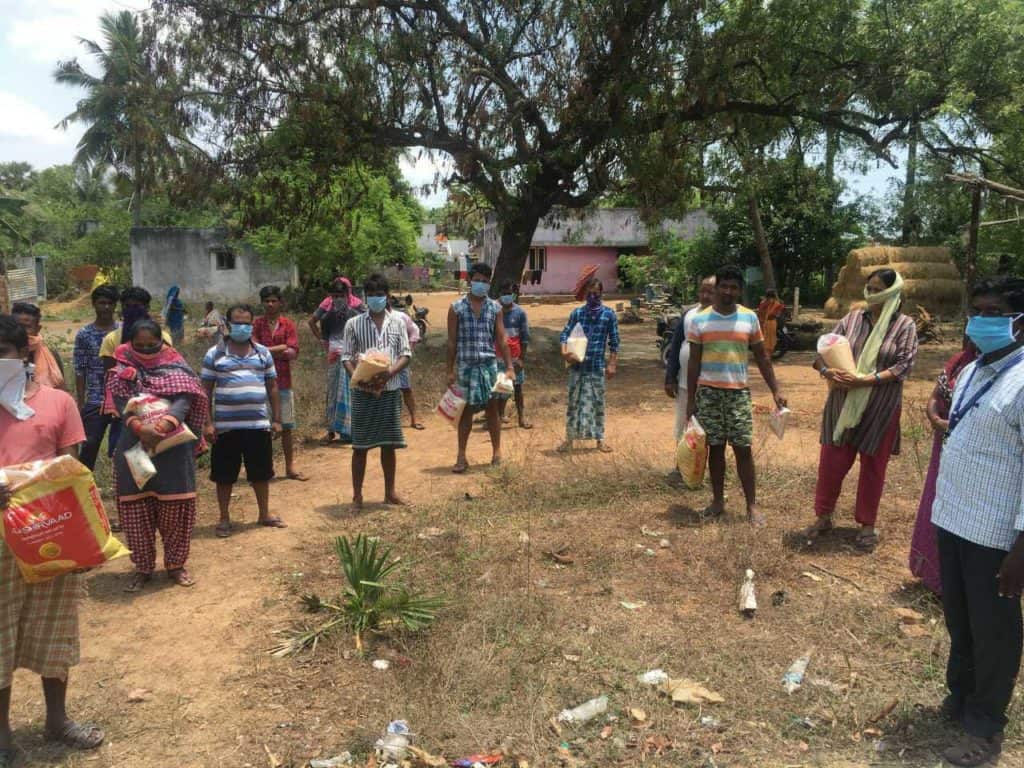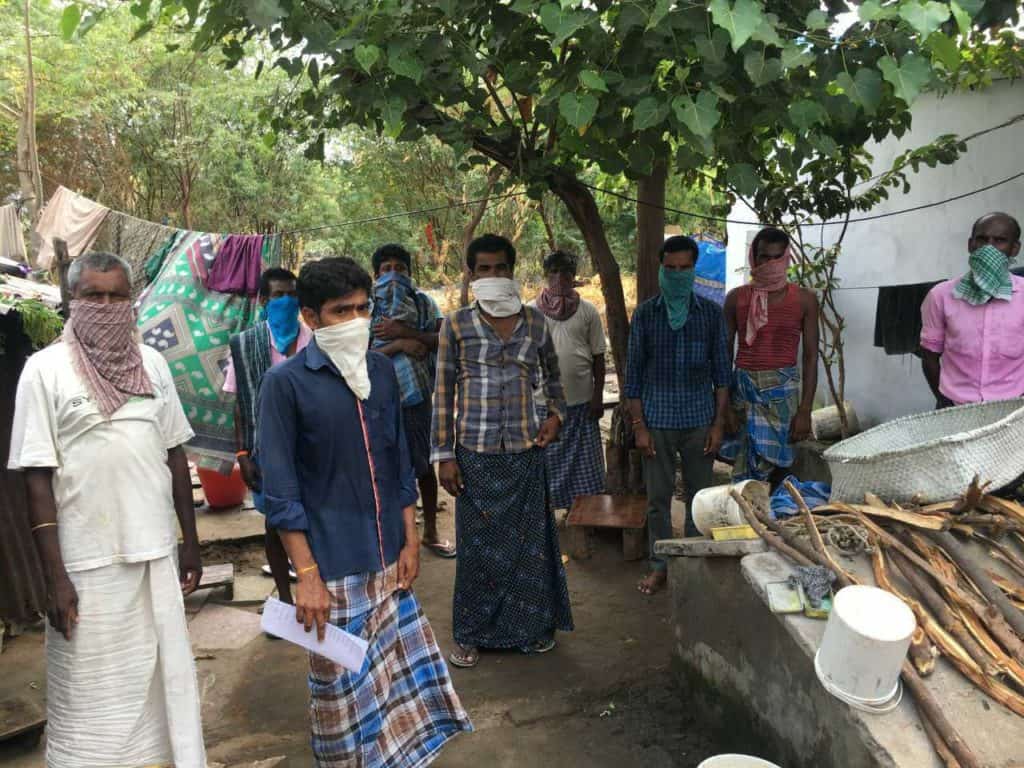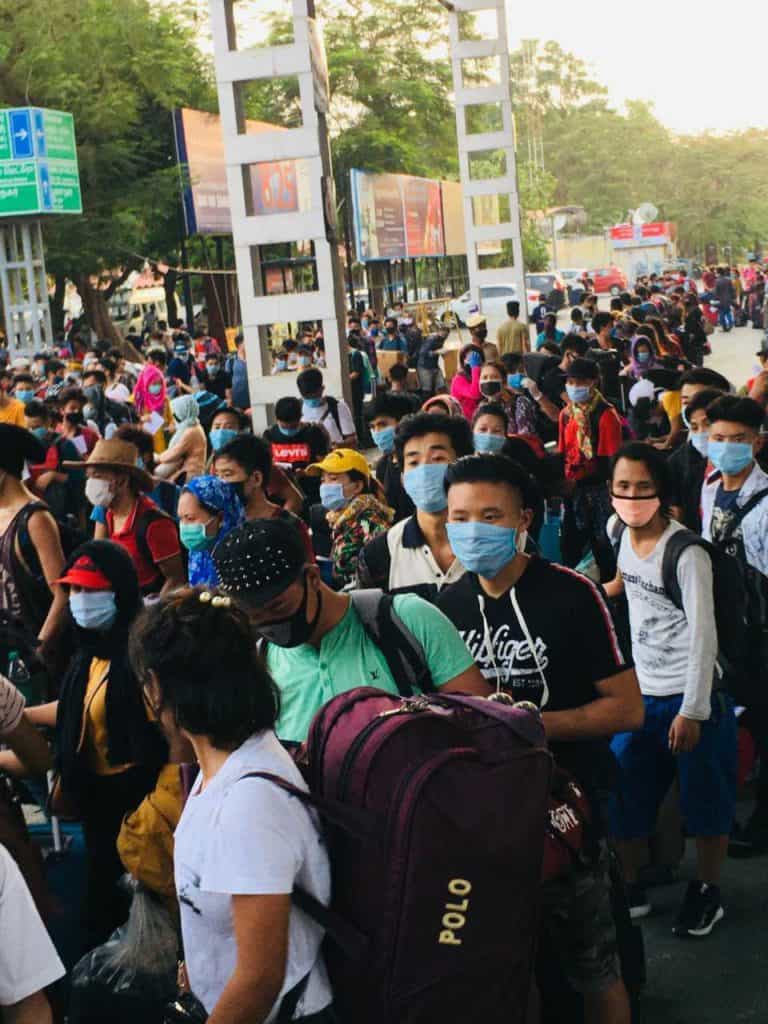As an extended lockdown was announced by the center and state to curtail the spread of COVID-19, little did I imagine that we would be witness to a humanitarian crisis of this scale, created by the Governments — both state and centre. Agreed that this killer contagion was nasty but to use that as a cover to deny any assistance to the migrants is a sheer act of cruelty.
Having lost their livelihood and jobs, migrants, who power our cities, found themselves staring at an uncertain future, facing hunger, fearing disease and caught in an alien state with language issues. Under the circumstances, the least that the state could do was provide them reasonable assurance that they would be taken care of, or that safe passage to their homes would be ensured.
The first hurdle was that guest workers in Chennai were not eligible for cash or groceries provided by the state government as they did not possess valid ration cards. The Greater Chennai Corporation too made the decision to stop provision of cooked food by NGOs before going back on its decision after realizing the scale of the crisis.

Workers walk but meet dead ends
Next came the travel crisis. With no support, no clear communication, no refuge, the migrants decided to go home. With all modes of transport banned and those available too expensive, they started walking in the searing heat of Chennai summer.
When the numbers swelled and accidents and deaths happened amongst those walking, hundreds of workers were stopped at the Andhra Pradesh state border by the police and sent back. The TN police too abandoned them by the side of highways, far away from any help. Much of this happened under the cover of dark.
Some workers tried hiring buses, with only 30 passengers allowed per bus. The charges, too, were exorbitant: a trip to Odisha cost Rs 5000 and one to UP was Rs 7500.Travel permits had to be obtained from both exit and destination states, making it an uphill task.
Even as they came close to home, a 14-day quarantine awaited before they could actually enter their village. Very soon, exit passes were reduced to 25 or even 20 passengers per bus, which made the already high cost unaffordable: Rs 7000 for Odisha and upwards of Rs 10000 for Uttar Pradesh.
Camps difficult to get into
As news of the issues faced by migrants blew up, the pressure from media, courts and civil society forced the government to run trains and to provide shelter to migrants stranded on roads. Under pressure, the Chennai Corporation started opening relief camps to accommodate the stranded, and ensure food, water, sanitation and health.
But there was no proper communication on the camp locations and how to get in, leaving the workers in the dark once again. Accommodation in the camps was largely arbitrary.
Relying on NGOs
Rajesh Sharma, Pramod Kumar and their group of 40+ workers from villages near Nalanda, Bihar were living in Velachery. After they lost their jobs, they survived on meal handouts on the main road once a day. Desperate for help, they reached out to our volunteer group on May 19th. We were able to arrange groceries through NGO ‘No Food Waste’ for a few days. They had sought help from local police and the Bihar association too, but to no avail. On May 23rd, about 30 people were lucky to get on a train and leave for Bihar, but 10 workers could not. Their wait continued until we were informed on June 26th that the group had finally managed to reach home three months after the lockdown began, after harrowing times in the city where they had hoped to secure their future.
The plight of those outside Greater Chennai Corporation limits was even more pathetic, with no relief centres in Chengalpet, Kancheepuram. For those who lost shelter provided by employers or their rented homes, there was nowhere to go. Thiruvallur was better off as there was plenty of outcry from NGOs and volunteers at the AP border.

Ordeal with Shramik trains
Meanwhile special Shramik trains began to run, with uncertainty on who would bear the costs. Registrations (not reservations) were open, but there was no way to track when workers would get their chance, if at all they would.
There was no timetable or tickets. The lucky ones got a message and could board a train, most of the time it was those in relief camps who were rushed in buses and dropped off at railway stations. With all options closed, many workers started assembling at the station only to be driven away or bundled into the backroads, awaiting their destiny on footpaths for days at a stretch.

Even those who managed to get on a train could not breathe a sigh of relief, as many long-distance trains had no provision for food and drinking water. The delays meant two-day journeys were taking twice the amount of time, with plenty of diversions and redirections.
Slipping through the cracks
On May 17th two groups of about 30 migrant workers, mostly from Bihar and Jharkhand, were intercepted by the police from AP border late at night. Some of them were on GST Highway near Maraimalai Nagar while others were stranded on Bengaluru Highway near Sriperumbudur.
Two others, Arjun Kumar and Mohan Singh were stranded without help for three days, with only assistance from a passerby for food and stay at a roadside eatery. Arjun managed to walk from there, take trucks, cycle, and use other modes of transport to finally reach Bihar. Mohan’s whereabouts are still not known to those who tried to assist him.
The second group of 18 (including workers Deepak Chauhan, Anu Kumar, Jitender Kumar) from Jharkhand had no jobs anymore and had to vacate their rooms. On May 24th they managed to reach Central Station, upon hearing that there was a train for Jharkhand. But that was not to be and they ended up waiting in the streets. With the help of volunteers they were directed to a relief centre near Elephant gate police station
Similar issues were faced by the group stranded in Maraimalai Nagar. The current status of many of these workers is not known to the volunteer groups that aided them. The sheer number of workers in need of help has been overwhelming.
There were no stops along the way and the few shops where the migrants could look for food or water were all closed. There was no assistance from NGOs either during the journey. Most of the migrant workers we spoke to seemed to be overpowered by emotions triggered by hunger and the fear of death.
What was the crime committed by these migrant workers? That they were not a vote bank? That they moved in search of livelihoods? And why did their native states, and even the centre, display such careless, callous and often sadistic attitude towards these lives?
The truth remains that this nation, which prides itself on modernization and self sufficiency, failed to help its most-needy citizens making them feel unwelcome in their own country. If not for the many NGOs, civil society and volunteer groups and kind hearted donors, the situation would have been much worse.
This is the real state of affairs even today.Very pathetic.
Very empathetic and probing article.
Painful to read the situation of our brothers, those who have undergone miserable months in this covid19 pandemic crisis.
We must be ashamed of neglecting these brothers.
We pray for their inner strength to come out of the situation
Great Job, please accept my wishes. Due to various reasons we are unable to spend time on providing service to society. Really happy to note that you are doing this service. May god give you strength and motivation to continue this service. Hats off to you.
I am ready to give job & accommodation nearly 50 workers if any body willing to work please contact @ 9042607691
Reach Logistics pvt ltd